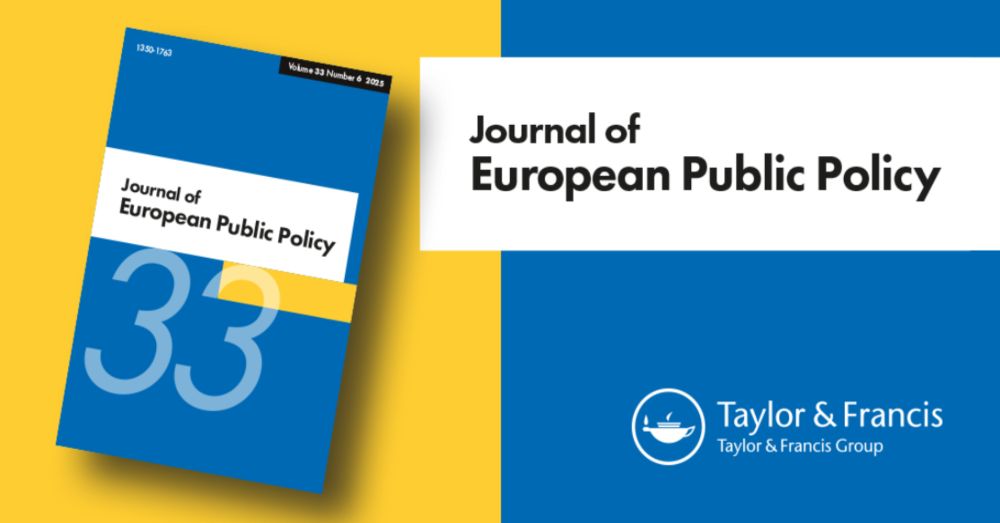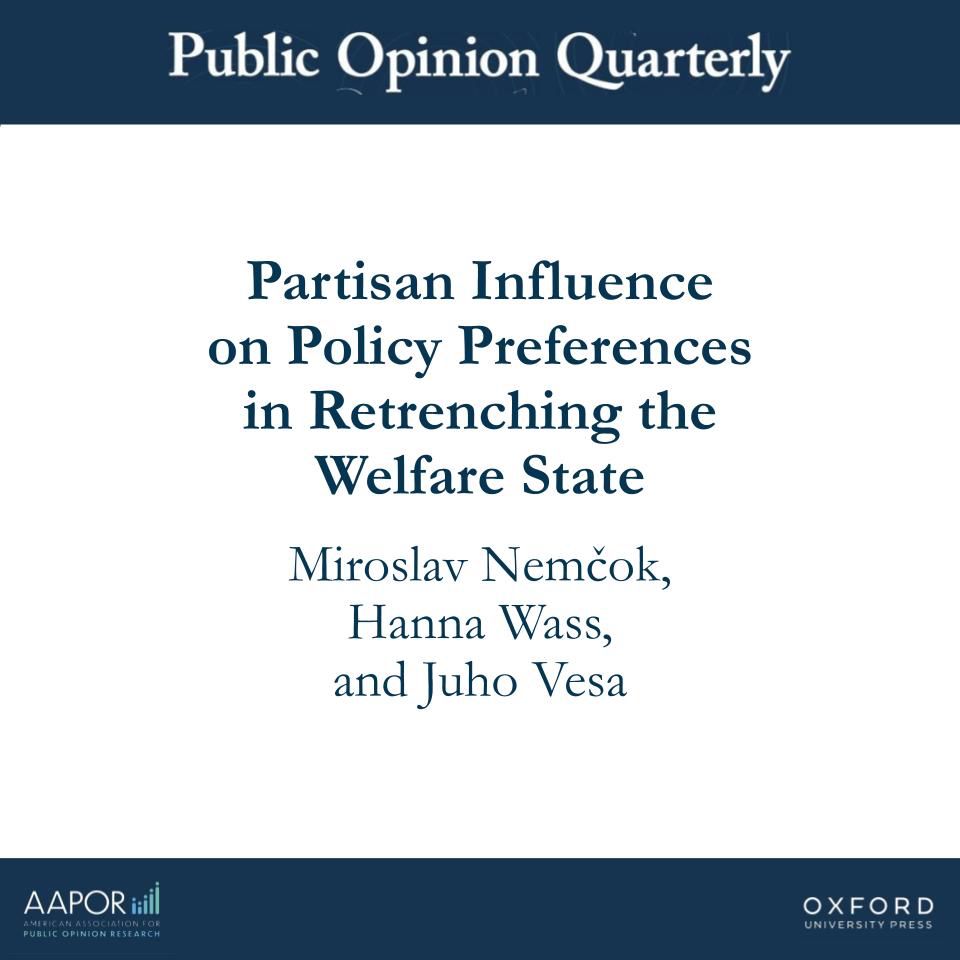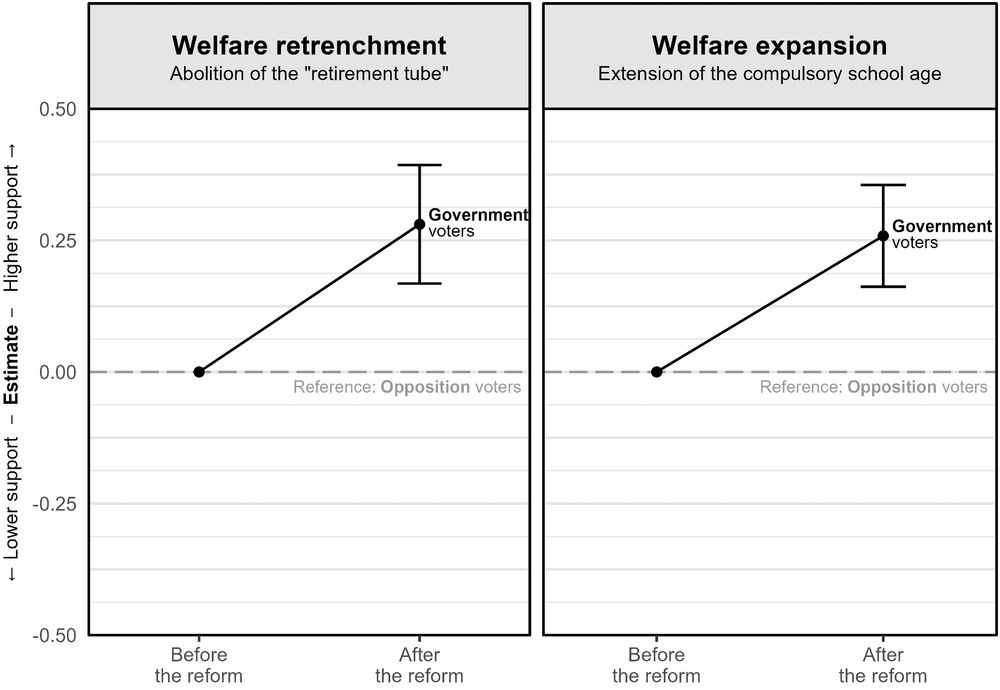Miroslav Nemčok
@miroslavnemcok.bsky.social
800 followers
330 following
45 posts
Researcher in political science at @UniOslo | Comparative politics, public opinion, and public policy. Coffee, food, aviation, and space exploration enthusiast.
www.miroslavnemcok.com
Posts
Media
Videos
Starter Packs
Reposted by Miroslav Nemčok
Reposted by Miroslav Nemčok
Reposted by Miroslav Nemčok
Reposted by Miroslav Nemčok
Reposted by Miroslav Nemčok
The Loop
@ecprtheloop.bsky.social
· Aug 12
Reposted by Miroslav Nemčok
The Loop
@ecprtheloop.bsky.social
· Aug 12
Reposted by Miroslav Nemčok
JEPP Journal
@jeppjournal.bsky.social
· Jun 30

Some policies matter more: party salience and interest group access to political parties in Western democracies
Political parties and interest groups play important roles in incorporating societal interests into democratic decision-making. Recent studies have analysed the causes of interactions between indiv...
www.tandfonline.com
Reposted by Miroslav Nemčok



















